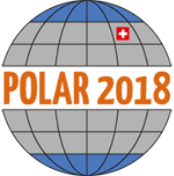 Polar wildlife – connecting ecology, health and disease issues in a changing world
Polar wildlife – connecting ecology, health and disease issues in a changing world
Side meeting, Polar 2018, Davos, June 15th 8:00-17:00
Organizers: Thierry Boulinier (CEFE CNRS-Université Montpellier, France), Susan Kutz (University of Calgary, Canada), Andres Barbosa (CSIC – Natural History Museum-CSIC Madrid, Spain), Meagan Dewar (AHEaD, Federation University, Australia)
Wildlife species are of critical ecological and socio-economic and importance in Polar Regions, yet in the current context of global change they are experiencing increasing health challenges and the persistence of many species is uncertain. A better understanding of wildlife health status, including the diversity of pathogens and ecology of infectious and non-infectious diseases (e.g. toxins, immunity, and stress), is critical in order to anticipate, manage, and mitigate wildlife health issues at the poles.
The aim of this workshop is to identify key scientific knowledge gaps in wildlife health and disease and to foster new research initiatives and collaborations at the interface between ecology and diseases in Polar Regions, (Arctic, Antarctic and sub-Antarctic). We will discuss the importance of including parasites and disease issues in biodiversity observatory networks in polar areas. The implications of some wildlife diseases for human populations in polar areas will also be addressed. Twenty years ago the first workshop about wildlife diseases in Antarctic provided several recommendations on research and monitoring needs. Main outputs of this workshop will include updating the recommendations from the 1998 Antarctic wildlife disease workshop, discussion of protocols for wildlife disease and health surveillance in both Arctic and Antarctic, and identification of major research and monitoring gaps for wildlife health in both regions.
Workshop outline:
The workshop is open to anybody with interest on the topic. It will include invited contributions and time for discussions. Some of the participants, notably some invited early career scientists, are supported by funding from the Terrestrial Working Group of IASC.
08:00- 08:15 Welcome
08:15-10:30 Monitoring wildlife diseases in polar areas: why, what and how?
10:30-11:00 The/coffee break
11:00-12:00 Wildlife Health and ecology - global issues and case studies
12:00-13:30 Break for lunch
13:30-16:00 Break-out groups and general discussion
1) The conservation of polar wildlife biodiversity for the health of the poles
2) Priority concerns and knowledge gaps with respect to polar wildlife health: threats to polar wildlife health and sustainability
3) Solutions: How do we address these concerns to ensure healthy and sustainable polar wildlife?
16:00-17:00 Conclusion-Perspectives
The meeting organized with support from IASC (Terrestrial Working Group) and SCAR-EGBAMM Working Group of Health Monitoring of Birds and Marine Mammals


